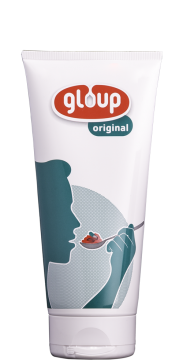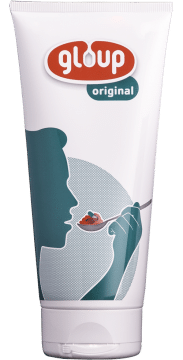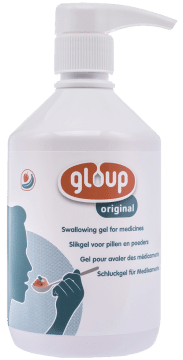WHAT MYTHS SURROUND DYSPHAGIA? REVEALED.

There are many myths that surround Dysphagia; what causes it, the outlook of someone who suffers from it and also its treatment.
It can be very distressing if you suffer with Dysphagia, or you are caring for someone who suffers. Symptoms of Dysphagia include the following:
- Anxiety or panic when swallowing
- Choking when attempting to eat or swallow liquids
- A sense of food or a blockage at the back of the throat
- Drooling when attempting to eat or swallow
- Plus many more
As a consequence of these symptoms, sufferers may become emotional, distressed, or even aggressive in an attempt to avoid having to consume tablets or supplements. Understandably, this can become traumatic for both the cared-for individual and their carer, on an ongoing basis.
We’re here to help bust some of those myths about Dysphagia and give you a helping hand when it comes to making the best choices for your patient or loved one.
Some of the most common myths are around what causes Dysphagia, these include, amongst others:
Being fussy
When people struggle with taking tablet, but there is no physical reason why they might struggle (for example they haven’t suffered from a stroke, they don’t have a Cleft lip or Cleft Palate and they’re not recovering from surgery, to name a few examples), it is easy for others to comment that they are ‘just being fussy’. However, Dysphagia is a real complaint and can affect anyone, at any time of their life. In this example, the physical and mental symptoms must be analysed alongside each other also.
Making an active choice to be ‘difficult’
Some may argue that patients, or those cared for are making a choice to struggle with swallowing; particularly medication. This is aligned with the idea that the sufferer in question can actively choose whether or not they swallow a tablet, or food with ease. Unfortunately, this is simply not true, much to the frustration of many Dysphagia sufferers. If an individual has a learning difficulty, an ongoing complaint, a physical feature such as enlarged tonsils or if they are recovering from surgery or something similar to a Stroke, they may have difficulty in swallowing and also communicating that difficulty effectively. Any support and resolution to this issue that they can receive, in our eyes, is extremely welcome and of benefit to the individual.
You can just use yoghurt to mask tablets
Some individuals who struggle with taking tablets, or their carers, recommend placing medication in food products such as yoghurts in order to ease the distress of taking tablets. Sometimes this method includes crushing the tablet or supplement first, for others it may be that the tablet or supplement can be swallowed whole using this manner.
The complication with this method is that yoghurt can often interfere with the effectiveness of the medication administered. Pro-biotics for example in yoghurt can interfere with anti-biotic medication, without the knowledge of the patient, rendering the administration futile. In addition, if a tablet is disguised wholly in a food product such as yoghurt, this can create a choking risk to the person in question.
Using jam to disguise the taste
Jam is often used to encourage patients to take the medication with minimum fuss, as the high sugar content may sometimes mask the flavour of the tablet. Unfortunately, if an individual is taking tablets on a regular basis, this added sugar can soon have a detrimental impact on the person’s diet and dental health. This method is best avoided.
Chocolate or sweets as a reward
Similarly, offering chocolate or sweets as a reward to somebody for taking their medication is again creating a habit that is detrimental to the person’s diet and dental health and should be avoided.
Crushed tablets
Crushing tablets can be seen as a quick and effective method of administering medication to those who struggle to swallow. However, by crushing medication before administering it, the effectiveness will be reduced because not all the medication will be absorbed by the patient. In this sense, it is inevitable to some of the medication to be left behind and so the full benefit will not be experienced.








